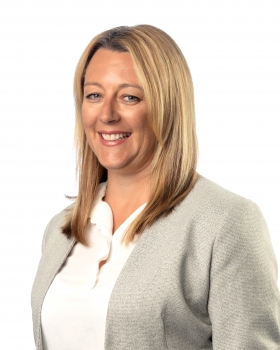Personal
Wills, Probate, Tax and Trusts
Our specialist team of wills, probate, tax and trusts lawyers work to safeguard your financial security for the future.
SOLVING PERSONAL LEGAL MATTERS

Services for Wills, Probate, Tax & Trusts
We provide Wills, Probate, Tax & Trusts services in the following areas:
View more
View less
Our team of experienced wills, trusts and probate solicitors provides a range of wills, probate, tax, and trusts services to help you manage your affairs and protect your assets. Planning for the future is an essential part of life, and at Forbes Solicitors, we can help you to ensure that your wishes are carried out after you have gone. From drafting wills and creating trusts to administering estates and managing tax affairs, we can provide you with the expert legal advice and support you need to plan for the future and protect your loved ones.
What is Wills and Probate?
Wills and probate are legal processes that involve the distribution of a person's assets and property after they have passed away. A will is a legal document that outlines a person's wishes for the distribution of their assets, while probate is the legal process of dealing with the assets and property of someone who has died.
Forbes Solicitors are experts in these complex areas of law, but you will find the legal advice we offer is straightforward and easy to understand. Whether you are a family member or executor, dealing with a will after a person's death can be a complex affair, which is why our team is dedicated to ensuring the process is dealt with care and compassion. We can also offer fixed fee services for Wills, Lasting Powers of Attorney and Probate.
Forbes Solicitors is a member of the Certainty National Registry of Wills. Registering your Will with Certainty ensures that it is easily traceable by your beneficiaries and not overlooked.

Contact Us
Get in touch to see how our experts could help you.
Contacting Us
Monday to Friday:
09:00 to 17:00
Saturday and Sunday:
Closed
FAQs
Why do I need to make a Will?
We spend our lives working to provide for ourselves and our loved ones. You may have a house or flat, shares, savings, investments as well as your own personal possessions. All of these assets are your "estate". Making a Will ensures that when you die your estate is shared according to your wishes and your loved ones are protected.
Everyone should have a Will but it is even more important if you have children, you own property or have savings, investments, insurance policies or you own a business.
Why should I use a solicitor when making my Will?
Making a Will may not be as straightforward as it might seem. Once you have decided to make a Will, it is vital that it is done properly. Trying to make your own Will without legal assistance can lead to mistakes or lack of clarity and could mean that your Will is invalid. If you have a number of beneficiaries, your family situation is complex or your finances are complicated it is even more important that you get a professionally trained specialist solicitor to prepare your Will.
Our team of highly skilled Wills, Probate, Tax and Trust solicitors understand that dealing with the repercussions of a Will can be a stressful time for all involved. We are dedicated to ensuring that the process is as smooth as possible.
What do I need to think about when making a Will?
Firstly, you should list what you have in your estate, then you can decide who you would like to leave it to (your beneficiaries) and in what shares. You also need to think about:
- Who will look after your children, if you have any (Guardians)
- Who should carry out the wishes contained in your Will (your Executors)
- What happens if any of your beneficiaries die before you
- Any other wishes you may have, for example, whether you want to be buried or cremated.
What happens if I do not make a Will?
The law sets out rules if you die without a Will.
For example, if the deceased is survived by a spouse/civil partner and children, the surviving spouse/civil partner will receive all the personal chattels and a legacy of £250,000. The balance is divided as to half to the surviving spouse/civil partner and the remaining half to the children.
If you are not married, your partner will not inherit from your estate.
We would strongly advise that a Will is made, allowing you to provide for your intended beneficiaries and to protect your family and loved ones.
When should I update my will?
Once you have written your Will it is a good idea to review it every 3-5 years to ensure it reflects your wishes. You should also review your Will after major life changes such as:
- getting married or entering a civil partnership - a Will is automatically cancelled by these events
- getting divorced
- the birth of children or other relatives you wish to benefit, for example, grandchildren or nieces and nephews
- a significant shift in your financial situation
Am I able to contest a Will?
In the unfortunate instance that you are not happy with the circumstances of a Will, you may be able to contest it. If you feel as though you have not received the outcome you were expecting or if you have relied upon receiving inheritance from a family member, you can raise a dispute with one of our specialist Contentious Wills, Trusts and Probate solicitors.
Can I make gifts during my lifetime to save paying inheritance tax (IHT)?
You can reduce the value of your estate for IHT purposes by making gifts during your lifetime. If you have surplus income or capital you can give cash or assets away to your beneficiaries. There are various exemptions and reliefs available, for example:
- Gifts to spouse/civil partner - all such gifts are free of IHT
- Annual exemption of £3,000 - everyone can make gifts of up to £3,000 every year. Any unused portion can be carried forward for one year
- Small gifts of up to £250 - gifts of upto £250 to any one person (cannot be used in conjunction with the £3,000)
- Wedding gifts - each parent can give £5,000, grandparents £2,500 and others £1,000 to a couple who are marrying
- Gifts out of income - if you regularly have surplus annual income you can establish a pattern of regular gifting out of that surplus. The gifts must be genuinely out of surplus income and must not leave you having to resort to you capital to maintain your usual lifestyle.
- Gifts to charity
- Other gifts to individuals - can be of any amount and providing you survive 7 years no IHT will be payable
It is important to remember that for IHT purposes, you must not retain any benefit from something you have given away. If you do retain any benefit, you will be treated as if you had not made the gift and the value of what you have given away will be included in the valuation of your estate when you die.
You should also be conscious of the tax implications for costly gifts. If you have given away assets with a value of more than the nil rate band £325,000 and you die within 7 years, the Executor or Administrator of your estate may be required to pay IHT.
Before you begin to gift your estate, it is important to speak to a professional regarding what is covered by exemptions. Our Wills, Probate, Tax and Trusts legal team will ensure you are not caught out by any unknown regulations.
How much can I leave when I die without having to pay Inheritance Tax (IHT)?
The IHT limit known as the nil rate band is currently £325,000. If the total value of all your assets including your house is more than the nil rate band, your estate may attract a 40% IHT charge.
Your estate may qualify for a lower rate of 36% if more than 10% of a component of your net estate is left to charity.
If you are married you may wish to leave your whole estate to your surviving partner, making use of the spouse exemption, with no IHT to pay. On the second death the unused nil rate band can be transferred to your surviving spouse/civil partner - the estate may now benefit from two nil rate bands, up to £650,000.
In addition to the standard nil rate band (currently £325,000) there is a residence nil rate band (currently £125,000, £150,000 from 6 April 2019) available when residential property is left to direct descendants. There are various conditions attached to the residence nil rate band and certain criteria need to be met so it may not be available in full or in every situation.
If you own any agricultural property or a business/shares in a business operating as a trading company (i.e. one which does not hold assets for investment), you may be able to claim relief from paying IHT, which can apply to a lifetime gift or be part of your Will. You should seek advice on your individual situation as in each case certain criteria must be met and the rules are quite complex
I am an Executor for someone who has just died, what do I do?
As Executor, you are responsible for dealing with the deceased's estate in accordance with the Will. In most cases you will need to apply to the court for a Grant of Probate. This document proves that you are authorised to deal with the estate. We can handle all of the procedures relating to the administration of the estate and give you advice and support at each stage in carrying out your duties.
When is Probate / Grant required?
The term Probate refers to the legal process of dealing with a person's estate after they have passed away. If the deceased left a Will, the executors may need to apply for a Grant of Probate before any estate administration can proceed. If there is no Will, Personal Representatives must apply for a Grant of Letters of Administration.
The question of when a Grant is required heavily relies upon on the deceased's assets and the value of their estate. For example if the deceased owned a property in their sole name, a Grant is most definitely required. We are able to advise as to whether or not you would need to apply for a Grant once we know the assets of the estate.
Dealing with the estate of a deceased person can be a difficult task, which is why our team are on hand to help. We are able to take care of matters in relation to the administration of the estate as well as any disputed matters that may have arisen.
Need more help?
Get in touch to see how our experts could help you.
Our Reviews
Our dedicated Wills, Probate, Tax & Trusts team
Partner and Trust and Estate Practitioner, Wills, Probate, Tax and Trusts
Wills, Probate, Tax & Trusts
![]() Lancashire
Lancashire
![]() 0333 207 1130
0333 207 1130
Senior Associate
Wills, Probate, Tax & Trusts
![]() Lancashire
Lancashire
![]() 0333 207 1130
0333 207 1130

Useful Information
Article
We're proud to support Update Your Will Week 2024
04 Mar 2024
This week is Update Your Will Week (4th - 10th March), an annual campaign hosted by The…
Article
Sensible steps to take to avoid a posthumous probate dispute
24 Jul 2023
The truth is that there is no way to extinguish the risk that an argument about your estate will arise…
Article
Give yourself the gift of peace of mind this Christmas
28 Nov 2023
Admittedly, planning for your ultimate demise is not the most festive of activities, and indeed it won…
Contact Us
If you have a general enquiry then please fill in your details and someone will contact you.
Contacting Us
Monday to Friday: 09:00 to 17:00
Saturday and Sunday: Closed











